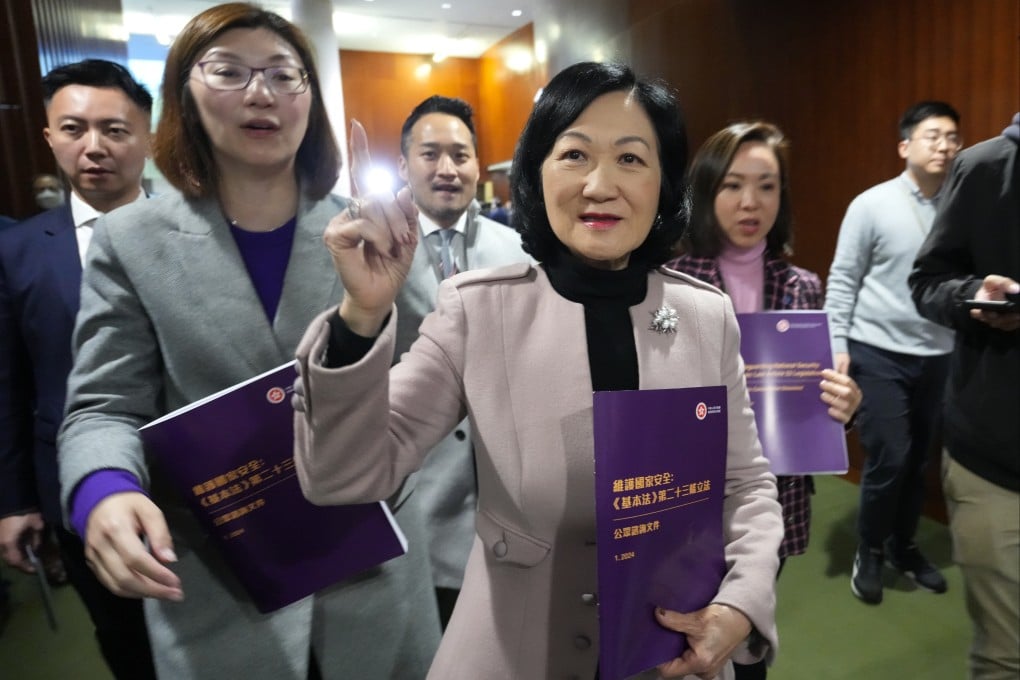Regina Ip hits back at criticism of domestic national security legislation, insists it will not turn Hong Kong into another mainland Chinese city
- Top government adviser Regina Ip says foreign critics wrongly think ‘one country, two systems’ governing principle will disappear once home-grown legislation is enacted
- She also stresses consultation document issued on proposed law makes no mention of handing over city’s data to mainland or vice versa

Ip, a lawmaker and the convenor of the government’s key decision-making Executive Council, on Friday told a radio programme that foreign countries had a wrong impression that the “one country, two systems” governing principle would disappear once the law was passed.
The principle, stipulated in the city’s Basic Law mini-constitution, guaranteed Hong Kong a high degree of autonomy for 50 years after Britain handed over rule to China in 1997.
According to Ip, some foreign countries also doubted the city would still have judicial independence after the passage of the law, which Hong Kong is required to enact under Article 23 of the Basic Law.
Asked whether Hong Kong’s internet and data operations would be affected after the legislation was enacted, Ip called the concerns “completely wrong”. She stressed the consultation document issued on the proposed law made no mention of handing over the city’s data to the mainland or vice versa.
“What worries many foreign businessmen the most is whether Hong Kong will be turned into another Chinese city. I think we should keep explaining to them,” she said.
“Over the past few years, all consulates sent their representatives to listen to trials of some big cases. Our courts allowed them to listen and live-streaming services started to be offered. Have they found any irregularities in court? No.”
